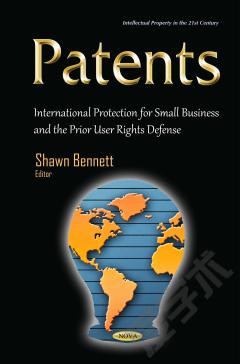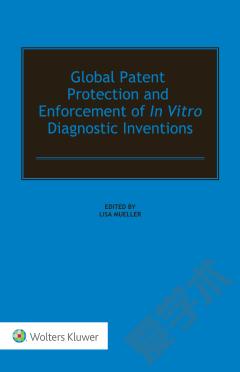Patents: International Protection for Small Business and the Prior User Rights Defense
Economic research shows that small businesses are the primary driver of job creation in the United States. Yet, the capacity of American small businesses to create jobs is at risk. American firms compete and grow by supplying products and services that consumers demand, and by internationalizing their businesses through licensing, franchising, or exporting. For many small companies, patent protection prevents competitors from simply copying their innovations, and aids in attracting investor capital needed to grow, build market share, and create jobs. The aim of this book is to show how the U.S. Patent and Trademark Office, in coordination with other Federal departments and agencies, can best support businesses with international patent protection. Moreover, upon its signing in 2011, the Leahy-Smith America Invents Act (AIA) substantially overhauled U.S. patent law. Included in AIA was the expansion of the prior user rights defense to infringement and broadening the classes of patents that are eligible for the new limited prior user rights defense. (Here, prior user rights, is a defense to patent infringement afforded to a party that was commercially using, or engaged in substantial preparations for commercial use of, an invention later patented by another party). In the debate about the impact of an expanded prior user rights defense on the patent system and innovation more generally, the U.S. Patent and Trademark Office produced a report detailing its findings and recommendations on the operation of prior user rights in the industrialized world, which is discussed further in this book.
{{comment.content}}








 京公网安备 11010802027623号
京公网安备 11010802027623号